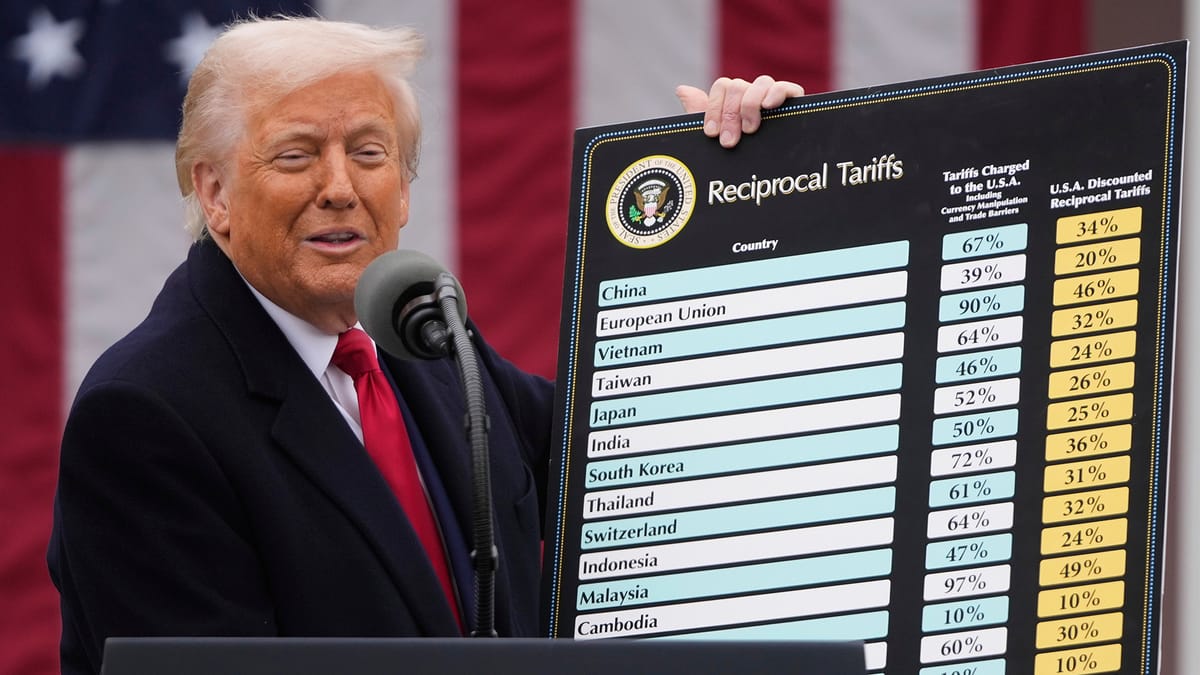Capricious Calamity of Constant Chaos

by Craig Wiesner - San Mateo Daily Journal - July 14, 2025
Do you remember “90 deals in 90 days” and the White House angrily demanding that Walmart “eat the tariffs” suddenly imposed on most foreign imports? Walmart had warned that the U.S. versus the world trade war would cause consumer prices to rise. The president said Walmart had billions in profits and could afford to pay the tariffs without raising prices. That’s somewhat true for many major corporations and big box stores who will have to weigh their obligation to maximize sales and shareholder profits against needing to keep customers coming through the doors. It is a lot tougher for family shops like mine.
Now, I am grateful to the White House, because, by telling Walmart to eat the tariffs, they’ve admitted that tariffs are, in fact, paid for by U.S. businesses and consumers, not the foreign countries where the products are manufactured. A big lie debunked, thank you.
As a shopkeeper, let me share how tariffs work for products coming from outside the United States. I order a product for my shelves priced by my supplier based on factors including development/production costs, shipping, and desired profit margin. When that product arrives at a port of entry, Customs and Border Protection calculates a tariff based on the product’s “transaction value.” The importer, my U.S. supplier, pays the tariff to get the product released from the port. My supplier, usually knowing in advance what the tariff rate is, can pass all, some, or none of that cost on to me. In a stable world, that cost is included in the published price I see when I place orders. Today, my suppliers of foreign goods have no idea what the tariffs might really be in the coming weeks or months, let alone how much of those costs they can “eat.” Absorbing any, of course, eats into their profits. Many of my suppliers are struggling to decide how much, if any, production to order for the coming months due to the chaos emanating from the White House, with random announcements of wildly fluctuating tariff percentages. At one point the administration suddenly imposed 145% tariffs on Chinese goods and 50% from the European Union. How can a company order manufacturing of products with absolutely no idea of what they’ll actually cost? The risk is massive. Some of my suppliers have already curtailed production, holding their breath. If certainty isn’t reached soon, some may not survive.
I’ve seen comments in this newspaper celebrating tariffs to get more manufacturing here at home. I get that. I opposed the race to the bottom, corporations seeking the cheapest labor around the world. There are too many places in the world where workers are mistreated, with sweatshops, child labor, and communities polluted with toxins. I don’t want products made through human suffering and planetary destruction. I’ve long believed in “Fair Trade” instead of “Free Trade.” That’s why so many shops like ours and many consumers strive to get products from companies, locally and around the world, that have a commitment to fair labor practices, living wages, using sustainable materials, and improving the communities in which they operate.
Manufacturing more here in the United States is a reasonable desire. But, I look at our current low unemployment rate, labor shortages plaguing existing industries, and I can not see where much new factory labor would come from, even if those factories are heavily AI and robotic. I also look at how long it takes to construct a single building and know that it will take years, even decades, to build ultra-modern factories and supporting infrastructure, with construction labor also in extremely short supply. Our current government certainly won’t be attracting immigrant labor to fill those gaps any time soon.
A retail industry expert told me that if the tariff situation wasn’t clarified soon there could be a tsunami of retail store closures, especially small shops. We bring in the lion’s share of our revenue around Christmas. The White House’s constantly changing announcements about tariffs, like last week’s “I’m gonna sit right down and write some countries a letter” message, have made holiday order planning impossible. Nearly $1 trillion dollars in holiday sales are at risk.
Small businesses are the backbone of our economy, creating roughly two thirds of new jobs in the last 30 years. The White House’s worldwide trade war risks destroying many small businesses, and their demise could bring on something worse than a recession. Absent a true national emergency, Article 1 Section 8 of the Constitution authorizes Congress to levy tariffs. We need to demand that Congress take charge. If they don’t, and the capricious calamity of constant chaos continues, some store shelves may soon be empty, and Walmart titans won’t be the only ones worrying about what they can afford to eat.
Craig Wiesner is the co-owner of Reach And Teach, a book, toy and cultural gift shop on San Carlos Avenue in San Carlos. Follow Craig: craigwiesner.bsky.social
AWESOME NEWS folks... 6/3 Ruling - Most of these tariffs are UNCONSTITUTIONAL!!! https://thehill.com/regulation/court-battles/5687657-scotus-rejects-trump-emergency-tariffs/
